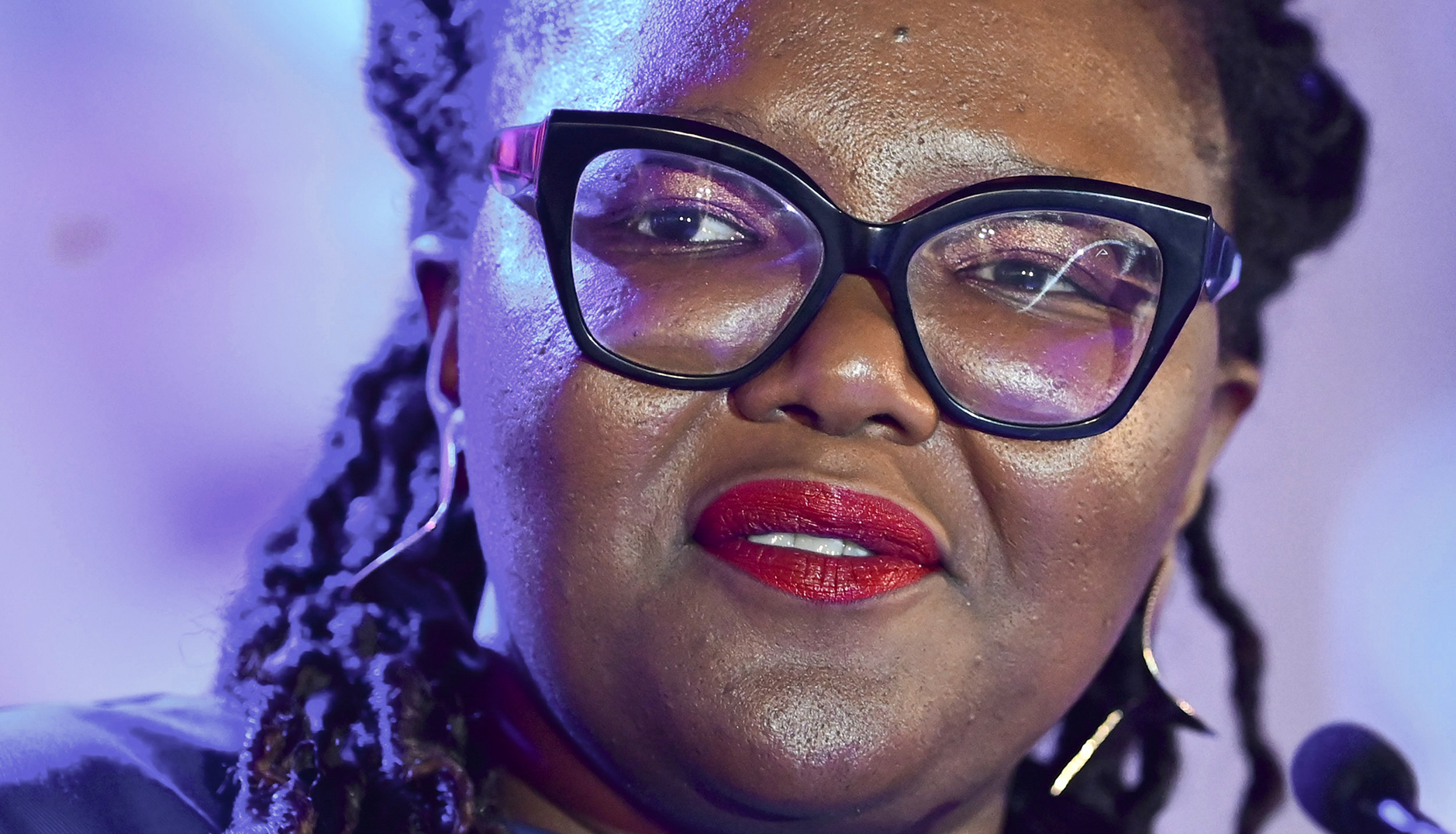While several groups have welcomed Basic Education Minister Siviwe Gwarube’s plan to “advise” President Cyril Ramaphosa to send the Basic Education Laws Amendment (Bela) Bill back to Parliament, she has yet to make any official recommendation to the President.
Speaking at the Opening of Parliament Address on Thursday evening, Gwarube said, “I can’t force my hand in anything at this point in time because ultimately the Bill is on the President’s desk. The President has a number of options that are available to him.
“One, he can ascend to the Bill, but also he can send it back to Parliament with specific details and instructions on where the sector has been uncomfortable and where they must fix some of its shortcomings.”
On Wednesday, Department of Basic Education spokesperson Elijah Mahlanga told Daily Maverick, “The minister merely expressed her intentions regarding the next steps. Nothing has happened up to now regarding this matter. The Bela Bill remains at the Presidency.”
He added, “There are no developments and there is no process. The matter will come up naturally like all other issues. It’s not urgent, even though [it’s] important. At the moment, the minister respects the fact that the Bill is on the President’s desk and it is his prerogative to do with it that which he deems necessary.”
Gwarube’s party, the DA, has consistently opposed the Bela Bill, which was passed in the National Assembly in March 2024, particularly aspects that it says will reduce the influence of school governing bodies (SGBs).
Speaking in Cape Town on Wednesday, DA leader John Steenhuisen said the party would “continue to fight against problematic national policies and legislation” such as the Bela Bill and NHI despite joining the ANC in the government of national unity (GNU).
Speaking on Wednesday, Steenhuisen said the DA would use its leadership in the basic education portfolio to influence the Bill.
“Not all aspects of the Bill are necessarily bad. There are areas we believe need to be re-looked [at] to ensure that we support mother-tongue education in South Africa and we do not dilute the role of the school governing bodies that allow parents to have a say in the type of education and the choices that are made for the education of their children.”
Send it back
ActionSA’s Lerato Ngobeni said Gwarube’s plan to ask Ramaphosa to send the Bill back to Parliament “comes as a relief”.
“From disempowering parents and SGBs to the blanket lifting of the ban on the sale of alcohol at schools, granting DBE unilateral powers to set a school’s language, the ill-thought-out introduction of compulsory grade R, and the outdated use of the Socio-Economic Impact Assessment which does not adequately estimate the fiscal and economic impact of implementing the Bill, these are some of the reasons why this Bill must urgently be sent back to Parliament for revision,” argued Ngobeni.
Read more: National Assembly passes controversial basic education bill amid threats of legal action
The South African Teachers’ Union, also known as the Suid Afrikaanse Onderwysers Unie (SAOU), submitted a petition to Ramaphosa in May asking him to reconsider some of the clauses in the Bill.
SAOU spokesperson Ted Townsend said they have not yet received a reply from Ramaphosa, but would support the Bill’s referral back to the National Assembly.
Townsend said the union had noted that the matter had not been mentioned in any of Ramaphosa’s subsequent formal statements or speeches.
Sign it
The Congress of South African Trade Unions (Cosatu) also urged Ramaphosa to sign the Bill. In a statement on Thursday, 18 July, Cosatu stated that Gwarube’s comments were offensive because the Bill had been passed by Parliament.
The Bill, Cosatu said, sought to ensure the accommodation of South Africa’s official languages and to address the historical injustice of forcing learners whose mother tongue was neither Afrikaans nor English to study in these languages.
“Opposition to the Bill is intended to undermine the introduction of mother-tongue based education which seeks to empower the majority of learners in our country,” Cosatu wrote, adding that alongside Sadtu, they would vigorously oppose and challenge any attempt to reverse the gains of 30 years of democracy.
Gwarube, Cosatu stated, should remember that elections were over, that her party formed part of the GNU and should respect the laws adopted by Parliament.
Read more: The school governance amendments in the Bela Bill are constitutional
South African Democratic Teachers’ Union (Sadtu) general secretary Mugwena Maluleke said it was a matter of public record that the DA opposed the Bill from the very outset in pursuit of its anti-transformation agenda.
Maluleke said the Bill represented the collective will and desire of the majority to transform the basic education system from an apartheid design to a democratic value-based system.
He said the union “strongly condemns [Gwarube’s] behaviour of playing to the gallery by making serious public announcements without engaging key stakeholders first”.
Maluleke urged Ramaphosa to sign the Bill because it was a product of a democratic process as provided for in the Constitution.
“Failure to sign this Bill will suggest that the transformation of our society through education is held to ransom by the minority that still owns our land and wealth,” Maluleke.
National Professional Teachers’ Organisation of SA (Naptosa) executive director Basil Manuel said the Bill that had eventually been passed dealt with some of the more contentious issues around language and admissions policies.
“We commented on the Bill over 10 years and over that period we had many changes made in our favour,” he said.
“We don’t live in a cuckoo land where we think that everything must [go] our way. There are many other voices speaking. In short, we accept that it is a workable Bill.”
Manuel said the union looked forward to engaging with Gwarube to find out about her concerns. DM




